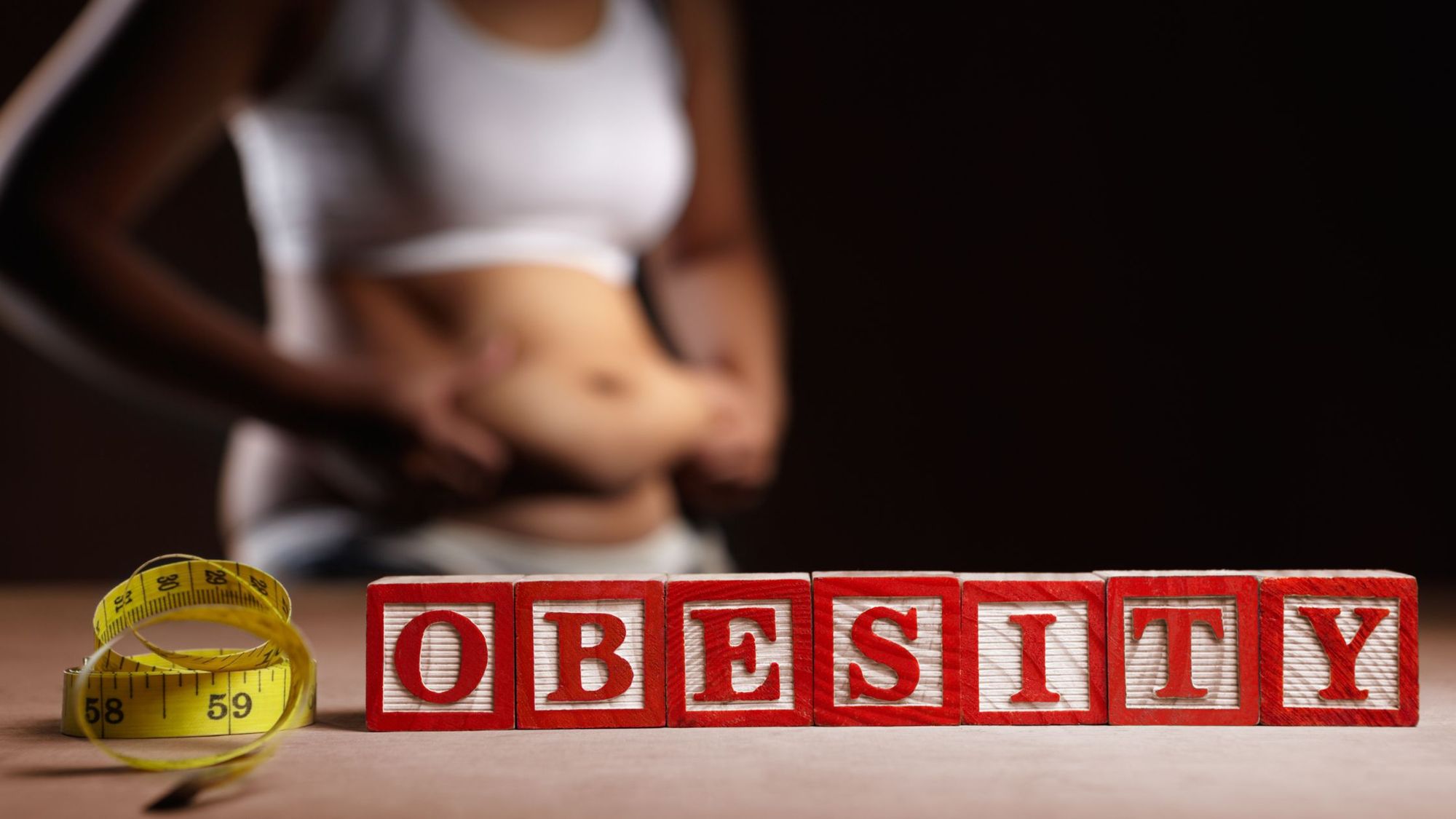
Two highly prevalent problems gripping society today are stress and obesity. Our fast-paced modern lifestyle creates inevitable stress as people try to juggle many things at once. With the constant on-the-go lifestyle and lack of down time, people tend to lack physical movement and resort to high-fat and empty calorie fast-food or instant meals with poor nutritional value. At the same time, stress could encourage overeating, where individuals try to relieve tension by indulging in unhealthy comfort food. Stress eating and poor choices could inevitably lead to unwanted weight gain and obesity.
Unfortunately, being overweight, especially being obese, is in itself stressful. All the added weight puts a heavy load on the body, resulting in physical ailments such as diabetes, hypertension and poor mobility with aching joints. And the sedentary lifestyle just perpetuates the weight problem. At the same time, obesity could affect the mind and induce more stress because, in this seemingly perfect world curated with beautifully filtered photos on social media, there’s a social stigma that’s associated with excessive weight.
The World Health Organization (WHO) says there are 1 billion obese people worldwide, including children. The number is even increasing as the days go by, and this is alarming because obesity is associated with a wide range of illnesses, such as stroke, heart disease, reproductive issues, mental health problems, and more. Research affirms that stress and obesity are somewhat interrelated, with excess weight contributing to more stress, and vice versa, promoting a vicious cycle of stress-induced weight gain. Learn more about this issue below:

How are Stress and Obesity Interrelated?
People who are chronically stressed have a higher risk of engaging in comfort eating or pleasure eating (stress eating). Hence, stress could impact your ability to maintain a healthy weight or deter you from losing weight. Stress-induced weight gain is now a common problem, especially with most people working a sedentary office job. Evidence suggests that the relationship between stress and obesity may be due to higher levels of cortisol (the stress hormone), unhealthy stress-induced habits like overeating, or a combination of both.
And this is alarming because obesity is considered an epidemic plaguing the world, with more and more people tipping the scales past the healthy weight range for their height. A comprehensive study in the Annual Review of Psychology points out that many pathways intertwine stress and obesity. The elements that link stress and obesity are the following:
- Stress interferes with cognitive processes like self-regulation and executive function. When this happens, it affects an individual’s ability to focus, exercise self-control, and make proper food choices.
- Stress impacts behavior by inducing overeating and consumption of fatty food, decreasing exercise, and promoting poor sleep. All of these elements combined lead to weight gain.
- Stress triggers physiological changes in the reward processing center of the brain and the gut microbiome. Hence, these changes could promote comfort eating and poor digestion, respectively.
- Stress could stimulate the production of biochemical hormones and peptides like leptin and ghrelin, which are hormones that affect appetite and satiety or levels of fullness.
Today, current obesity prevention efforts are highly focused on proper eating and getting sufficient exercise. Stress as a potential trigger for obesity is often overlooked. However, as pointed out in numerous studies, stress and obesity cannot be discounted. Thus, for people who truly want to beat their battle against the bulge, it is also critical to alleviate stress as it has a major impact on weight.

How Does Stress Affect Weight?
Stress affects weight in two ways. A Harvard report said that short-term stress could lead to appetite suppression. Examples of short bursts of stress could be a sudden work project with a deadline, having a minor misunderstanding with a spouse, or breaking your smartphone. With short-term stress, the brain produces a corticotropin-releasing hormone, which is said to suppress appetite. When you encounter a stressful stimulus, this sends a signal to the adrenal glands. They produce adrenaline, which impedes your urge to eat temporarily because your body is more concerned about its fight-or-flight response.
However, chronic or long-term stress, like a stressful job, a long-drawn-out divorce, or financial worries, has the opposite effect on appetite. Unceasing stress impacting daily life means the stress hormone cortisol is always secreted by the body. What does elevated cortisol mean for your fight against stress and obesity?
Cortisol and appetite
The prevalence of the cortisol hormone increases appetite levels. Studies attest that people who experience chronic stress are more prone to obesity because chronic cortisol exposure has a strong correlation with fat adiposity. At the same time, the constant presence of elevated cortisol due to chronic stress could encourage people to eat more.
Cortisol and cravings
When you’re stressed, you may notice you’re craving sugary foods. The reason is your body requires more energy under duress, and simple sugar or carbs is what your body usually uses for fuel. Hence, for a quick energy boost, your body thinks it needs sugar, which is why you may feel inclined to reach for sweet snacks. However, if you give in to cravings and consume excessive calories, your body will store excess sugar as fat. And the cycle of getting stressed, releasing cortisol, craving sugar, eating more, and gaining weight may continue to blow out of proportion when you’re under long-term stress.
Cortisol and metabolic rate
The presence of cortisol slows down the metabolic rate or the rate at which your body burns calories and fats. With poor metabolism, you may find it much harder to shred excess fat and lose weight. One study reported that women who experienced more stressors burned 104 calories fewer than those who were not stressed, resulting in an astounding 11-pound weight gain annually. Those who were stressed out also have higher insulin levels, which contributes to fat storage in the body.
Break the Cycle of Stress and Obesity
When you’re chronically stressed, exercise and healthy eating may take a backseat. If you’re serious about breaking the cycle of stress and obesity, it’s imperative to make a conscious effort to combat stress-induced weight gain. Here are a few tips that can help your wellness journey:
Make Time for Exercise
Exercise helps with weight management and stress reduction. If you want to ward off the ill effects of stress and lose or maintain a healthy weight, move your body at least 30 minutes a day. Apart from hitting the gym, you can also make small changes like taking the stairs in the offices, parking far from the entrance, and walking during lunch hour.
Eat Healthier Food
Practice mindful eating and be more aware of what you put in your body. Stock your pantry with healthy fats like nuts and complex carbs. Choose whole grains like wheat bread and stock up on fruits and veggies. Having a well-stocked pantry means you can grab healthy options even when under duress. By giving yourself options instead of restrictions, you will have a healthier relationship with food.
Drink More Water
Don’t confuse thirst for hunger and drink plenty of water. If you exercise, live in a hot climate, smoke, or drink diuretics, you may need more than the recommended eight glasses per day. Choosing healthy electrolyte beverages may also help. When you’re not dehydrated, it’s easier to identify real hunger pangs.
Practice stress-relief
Find healthy ways to de-stress like reading a book, doing meditation with deep breathing, getting a message, or listening to music. Doing these activities can reduce your body’s cortisol levels and help you manage your cravings, metabolic rate, and weight.
If your stress-induced weight gain is making you feel distressed and affects your zest for life, consider professional help. Your doctor would be able to determine underlying issues, such as if you’re suffering a mental health disorder that could affect your stress levels or a hormonal imbalance that may inhibit your ability to lose weight. Furthermore, seeking therapy could also teach you coping tools, allowing you to get a better grip on your stress and weight.
You could also find out your genetic risk of obesity by taking a CircleDNA test, which is an at-home DNA test that can check if you’re genetically at higher risk of obesity and other conditions. CircleDNA reports provide the best nutrition and exercise plans that complement your unique genetic body composition. For example, you will know which ingredients are most likely to react with your body or which targeted exercises can help you reach your fitness goals. When you’re armed with the right information, you can make healthier choices and live a happier life.
References:
- World Obesity Day 2022–Accelerating action to stop obesity (WHO) https://www.who.int/news/item/04-03-2022-world-obesity-day-2022-accelerating-action-to-stop-obesity
- Stress and Obesity: Are There More Susceptible Individuals? (Eline S. van der Valk et.al) https://www.ncbi.nlm.nih.gov/pmc/articles/PMC5958156/
- Psychosocial Stress and Change in Weight Among US Adults (John P. Block et.al.) https://academic.oup.com/aje/article/170/2/181/111196?login=false
- Stress and Obesity (A Janet Tomiyama) https://pubmed.ncbi.nlm.nih.gov/29927688/
- Why Stress Causes People to Overeat (Harvard Health) https://www.health.harvard.edu/staying-healthy/why-stress-causes-people-to-overeat
- Long-term Stress Linked to Higher Levels of Obesity (UCL) https://www.ucl.ac.uk/news/2017/feb/long-term-stress-linked-higher-levels-obesity
- Hair cortisol and adiposity in a population-based sample of 2,527 men and women aged 54 to 87 years (Sarah Jackson et.al.) https://onlinelibrary.wiley.com/doi/full/10.1002/oby.21733Daily Stressors, Past Depression, and Metabolic Responses to High-Fat Meals: A Novel Path to Obesity (Janice K. Kiecolt-Glaser et.al.) https://linkinghub.elsevier.com/retrieve/pii/S0006322314003850






